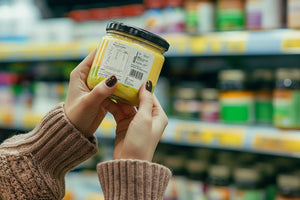
What Consumers Must Know About Paneer Adulteration?
Paneer is a staple in many Indian homes. It is loved for its soft texture, rich taste, and high protein content. But did you know that the paneer you eat may not always be pure? Adulteration in paneer is a growing concern. Many people unknowingly consume low-quality or fake paneer. This blog helps you understand how to check the purity of paneer and protect your health.
Why Paneer Adulteration is a Serious Problem?
Paneer adulteration can cause serious health issues. Some sellers mix starch, detergent, or synthetic milk to increase quantity and profit. These substances can harm your digestive system, kidneys, and overall well-being. That is why every consumer must learn how to check adulteration in paneer and make safer choices.
How to Identify Fake Paneer at Home?
You don’t need a lab to test paneer. Simple kitchen tests can help you spot fake or adulterated paneer. Here are the most effective methods:
1. Starch Test
- Take a small piece of paneer.
- Add a few drops of iodine solution to it.
- If the paneer turns blue, it contains starch.
This is a common paneer adulteration test and is easy to do at home.
2. Texture and Smell Check
- Pure paneer is soft, moist, and slightly grainy.
- If it feels rubbery or smells sour, it may be spoiled or fake.
This is one of the basic ways to identify fake paneer without any chemical.
3. Heat Test
- Put a piece of paneer on a hot pan.
- Pure paneer will leave little to no water.
- Fake paneer will release excessive water and shrink fast.
4. Taste the Difference
- Pure paneer tastes fresh and milky.
- Fake paneer may feel bland or bitter.
Use your senses — see, touch, smell, and taste — to detect impurities easily.
How to Check Purity of Paneer Before Buying
You can also use the following tips while purchasing:
- Buy from trusted local dairies or branded stores.
- Check for FSSAI certification on the packaging.
- Ask for fresh batch details and check the date of production.
- Avoid paneer that looks too white or rubbery — this may be synthetic.
What Happens If You Eat Fake Paneer?
Consuming fake paneer once may not harm you. But eating it regularly can cause:
- Stomach problems like gas, bloating, and pain
- Skin allergies or rashes
- Kidney issues in extreme cases
- Reduced nutritional value in your diet
That's why knowing how to check purity of paneer is important for you and your family.
Truly Desi’s Promise: 100% Pure and Fresh Paneer
At Truly Desi, we believe in serving only pure, unadulterated food. Our paneer is made from A2 cow milk with no chemicals, no preservatives, and no shortcuts. Each batch is lab-tested, freshly packed, and delivered with care.
We invite you to taste the difference, trust the quality, and enjoy paneer the way nature intended.
Final Thoughts
Stay aware. Stay safe.
Now that you know how to check adulteration in paneer, make it a habit. Teach your family. Share with friends. Choose purity. Choose health.





